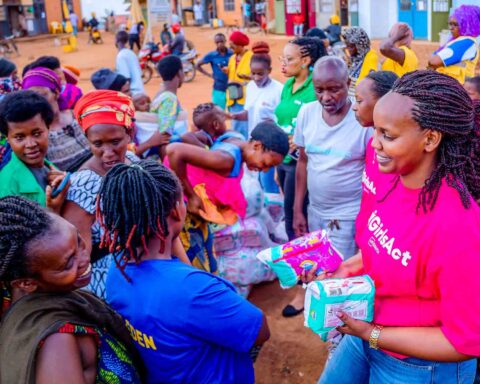By Millicent Ifeanyichukwu and Henry Oladele
The United Nations Children’s Fund (UNICEF) has launched the BIRD-Lab Nigeria, a behavioural insights research and design laboratory, to centre children and communities in development.
Speaking at the launch in Lagos on Friday, UNICEF Nigeria Country Representative, Wafaa Saeed, described the initiative as transformative, enabling deeper understanding of children’s realities and co-creation of practical responses.
She said the laboratory was not merely an event launch, but an opportunity to reshape UNICEF’s child-focused work and invest in Nigeria’s long-term prosperity.
Saeed recalled that UNICEF’s mandate from the United Nations General Assembly is to help member states ensure children receive the best start in life and fulfil their potential.
“Everything UNICEF does begins and ends with children. This is why BIRD-Lab Nigeria unites experts from psychology, sociology, nutrition, communication and other disciplines,” she explained.
She said the laboratory would serve as a hub for collaboration, innovation, and behavioural research to better understand decision-making by children and their communities.
Saeed added that BIRD-Lab would provide tools to ask the right questions, gather insights, and co-create sustainable solutions alongside children and their communities.
She commended the Federal Ministry of Health and Social Welfare, the Ministry of Information and National Orientation, and the University of Lagos (UNILAG) for hosting the laboratory.
According to her, the initiative will also equip graduate students to work on real-time programmatic challenges, advancing careers while developing meaningful child-focused solutions.
“UNICEF is excited and fully committed. We are contributing ideas and creating real-time opportunities that will transform outcomes for children in Nigeria,” Saeed affirmed.
Prof. Bayo Onajole, Chairman of NETBRECSIN, described the lab as an inclusive hub fostering collaboration, knowledge-sharing, and innovative behavioural solutions to improve child development outcomes across communities.
He explained the project draws inspiration from Ethiopia’s behavioural insights lab, using creativity and expertise to design and test strategies for measurable, lasting impact.
“No project of this scale succeeds in isolation,” Onajole said, thanking stakeholders, sponsors, and partners for their consistent support and belief in the mission.
Representing the Vice-Chancellor, Prof. Folasade Ogunshola, Deputy Vice Chancellor (Development Services), Prof. Afolabi Lesi, expressed confidence in the project’s success, citing three key reasons.
He said it was multi-disciplinary, engaging sociologists, physicians and others; it had a national outlook as Africa’s second such initiative; and it emphasised strong partnerships with government and universities.
On the sidelines, Prof. Ademola Oremusu, Provost of the College of Medicine, said UNICEF and partner support would inspire the university to focus more on communities.
He reaffirmed commitment to behavioural research, stressing that BIRD-Lab would help tackle health challenges beyond hospitals by shaping practices and beliefs that influence maternal and child health.
Oremusu added that 19 Nigerian universities had already joined the consortium, with more expected, urging stronger government involvement and community participation to drive meaningful change.
“We will measure impact using indices such as reduced maternal and infant mortality, improved child survival, and better immunisation coverage — evidence to guide policy and reform,” he said.
UNICEF’s Chief of Social Behaviour Change, Kshitij Joshi, described BIRD-Lab as more than a facility, but an approach uniting universities, civil society, media, and private sector to understand behaviours.
He explained the lab is not restricted to Lagos or UNILAG, but represents a model for similar centres across Nigeria, creating hubs for innovation nationwide.
“The platform brings diverse expertise to address challenges from health to education and sanitation, focusing on behavioural science-driven solutions,” Joshi said.
He noted that student-generated data is being reviewed by professors, shaped into policy briefs, and used by government agencies to strengthen interventions.
Joshi added that the Federal Ministry of Health had dedicated space for integrating BIRD-Lab findings into national policies, aligning services with people’s realities for greater impact.



























